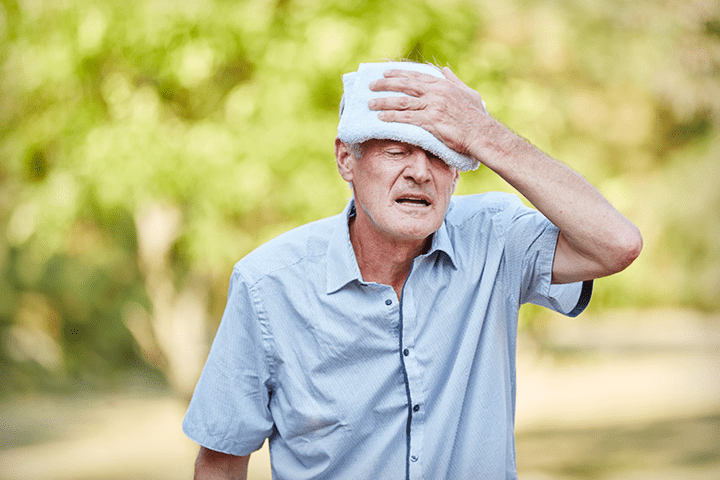Summertime in Central Florida is a time for fun and relaxation for most. For seniors, however, the rising temperatures can be dangerous if the proper precautions aren’t taken. Learn more about the steps you and your family can take to prevent health-jeopardizing situations this summer.
Medications & Your Doctor
Check with your doctor to verify whether you take any medications that could affect how you react to higher temperatures. If you do not have air conditioning in your home, also ask about whether the temperature will affect your medication’s effectiveness. This is because most medications are less effective if stored at temperatures higher than room temperature, or about 78 degrees Fahrenheit. Prevent your medical condition from becoming aggravated due to high temperatures by consulting your doctor about these instances.
Communicate
Spikes in temperatures can become life-threatening past a certain age. Thus, communication plays an key role in ensuring the safety of your elderly loved ones. For seniors, let friends and family know if you’ll be spending any extensive period of time outside. Even activities such as gardening could become jeopardizing in the right temperature, and Florida weather is unpredictable. For caregivers, plan to check on the welfare of your loved ones at least twice a day if they plan to be outdoors.
It’s also beneficial to be in touch with those who live in your neighborhood. Learn a bit about them and their schedules and let them know yours. If you are elderly, see if a younger neighbor (perhaps even one of their kids) can come by and check on you occasionally to make sure everything is all right. The extra company and friendship that can result is a bonus!
Know what to do in case of an emergency. Preparing a list of emergency phone numbers could save a life one day. Place them in an easily accessible area so the right people can be called to help prevent any issues or medical problems from getting worse.
Hydration & Keeping Cool
Because they lose the ability to conserve water, seniors are more susceptible to dehydration than adults and youth. Seniors can also be less aware of their thirst and may have difficulty adjusting to temperature changes, especially while on certain medications like blood thinners. As a rule of thumb, always drink water often and watch your electrolytes.
For seniors who are coping with chronic medical conditions, even small increases in temperature can shorten the life expectancy. Shopping malls, movie theaters and libraries provide welcome, cool spaces if a senior’s own home isn’t air conditioned. They also afford a great opportunity to get out of the house and get some exercise, without the exhaustion of the heat.
Dress Smart
Everyone, including seniors, should dress for the weather. When it’s particularly warm, natural fabrics (such as cotton) tend to be cooler than synthetic fabrics. Your summer wardrobe should include light colors and loose-fitting clothing to help you feel cooler and comfortable. Wear sunglasses to protect the eyes from harmful UV rays. Protective sunglasses also help preserve your vision. Hats are also a great idea, especially for those with only distant memories of a full head of hair, to prevent sunburn and skin cancer. Speaking of sun damage, always wear sunscreen when outdoors. Seniors especially need the sun protection to help keep them healthy. Caregivers, family and friends can help by gently reminding loved ones about applying sunscreen and helping them apply it. Lastly, If you live in areas where there are a lot of mosquitoes, like Lakeland or Winter Haven, Florida, use mosquito repellent. This will help reduce your risk of getting bit by a mosquito carrying a contagion.
We hope these tips help you have an enjoyable and fun-filled summer — no matter how old you are. To learn more about summer safety, check out this Senior Care Emergency Checklist.

 Call Lakeland
Call Lakeland
